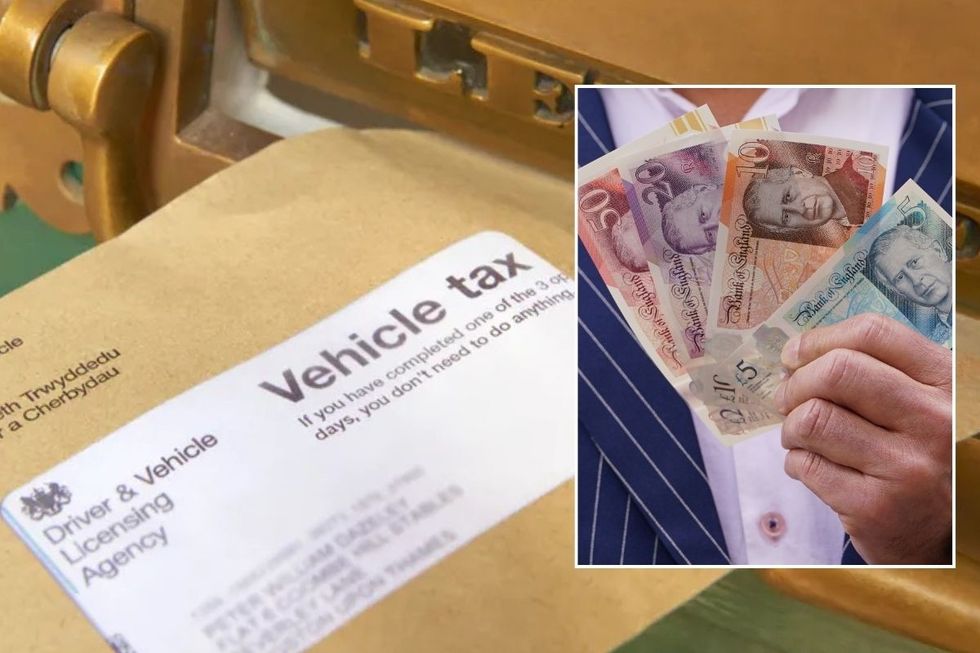WATCH: Chancellor Rachel Reeves unveils new car tax changes launching in April 2025
GB NEWS
Experts argue that car tax changes should not impact the prices of family vehicles
Don't Miss
Most Read
Trending on GB News
Car tax changes launching within weeks will have a devastating impact on motorists looking to buy new electric vehicles despite aims to remove petrol and diesel vehicles from roads.
In the 2024 Autumn Statement, Chancellor Rachel Reeves announced a raft of measures to push drivers towards electric vehicles, and away from traditional petrol and diesel cars.
This included a massive hike in first year tax rates for internal combustion engine cars and greater funding for electric vehicle charging stations across the UK.
Budget documents also addressed the future of the Expensive Car Supplement which is levied on new cars with a market value of more than £40,000.
Do you have a story you'd like to share? Get in touch by emailingmotoring@gbnews.uk

The 'luxury tax' could see drivers turned off from buying an electric vehicle
GETTY/PA
It acknowledged that the ECS continues to have a "disproportionate impact" on those looking to buy zero emission vehicles.
However, it only committed to considering raising the threshold for electric cars "only at a future fiscal event" to make it easier for motorists to buy these vehicles.
Stuart Masson, editorial director of The Car Expert, described the Expensive Car Supplement as a "counter-productive tax grab" for those looking to buy electric cars.
He said: "The UK's so-called 'luxury car tax' is unfairly penalising drivers who want to make the switch to electric vehicles.
"Under current VED rules, cars with a list price of more than £40,000 are subject to an additional £410 charge every year for five years - making EV adoption more expensive for many as inflation and rising car prices push more mainstream models above this threshold, and effectively further disincentivising drivers for choosing cleaner, more sustainable transport."
He noted that the ECS was originally introduced eight years ago to target high-end luxury vehicles, although this now applies to more vehicles because of increasing car prices and inflation.
Ahead of new car taxes being introduced in April, some experts have been calling for the threshold to be raised to a more suitable rate of £50,000 which would include fewer electric vehicles.
Masson added that the Government policy was a contradiction to its aim of rolling out more electric vehicles and removing petrol and diesel vehicles from roads.
The new rules will impact electric vehicles from April 1, 2025, which is the same day electric car owners will have to start paying Vehicle Excise Duty.
This was first announced by former Conservative Chancellor Jeremy Hunt in the 2022 Autumn Statement as he argued all motorists should pay a fair share of tax to use the roads.
Masson said: "A luxury car tax should not be used to drive up the prices of electric family cars from the likes of Kia, Renault, Skoda or Vauxhall, but that's exactly what is about to happen."
The Department for Transport's Zero Emission Vehicle mandate consultation recently ended with hopes the Government will clarify its position on the future of EVs and ICE cars on the road.
LATEST DEVELOPMENTS:

Campaigners are calling on the Government to amend the terms of the Expensive Car Supplement
PAThe ZEV mandate requires manufacturers to have a minimum percentage of sales come from zero emission vehicles every year. By the end of this year, the threshold is 28 per cent and will rise to 80 per cent at the end of the decade.
Transport Secretary Heidi Alexander said: "Since we launched the consultation in December, the Government has engaged closely with car manufacturers on how we can support them to deliver the transition to electric vehicles.
"Our consultation on the 2030 phase-out of new petrol and diesel cars has now closed and we will set out our response as soon as possible. We will carefully consider industry feedback as we develop our response, as part of our ongoing commitment to work in partnership with them to deliver this transition.
"2024 was a record year for EVs with sales up a fifth on the previous year and nearly 20,000 public chargers added to the network. We’re continuing to back the sector by investing over £2.3billion to help the sector and consumers make a supported switch to EVs, creating high-paid jobs, tapping into a multi-billion pound industry and making the UK a clean energy superpower to deliver our Plan for Change."








